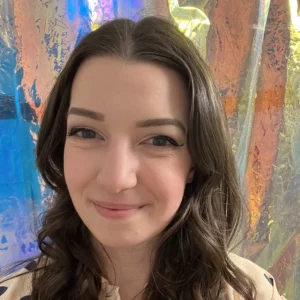Originally published in TEACH Magazine, January/February 2022 Issue
By Kelsey McCallum
Play has been shown to have many socio-emotional and cognitive benefits for children. It is through play that children develop important skills such as communication, problem solving, and critical thinking. It is also how they learn to interact with the world and with others, explore their interests, and try out different ideas.
Children’s museums can be excellent environments to foster this creativity and curiosity through hands-on, multi-sensory environments. Check out the following selection of children’s museums to find a mixture of online and in-person experiences, complete with plenty of unique and engaging exhibits.
Note: the information below was current at the time of writing. Please confirm specific availabilities with each location.
Glazer Children’s Museum
Tampa, FL
Grade Level: K–5
Currently offering:
The GCM’s many imaginative play exhibits give kids the chance to try out different roles. Whether they’re caring for animals at the Vet Clinic, saving the day at the Firehouse, or creating something extraordinary at the Engineer’s Workshop, students are sure to have a blast as they discover and connect to the world around them. Note that the museum also offers sponsored visits for Title 1 Schools in nearby counties.
Kohl Children’s Museum
Glenview, IL
Grade Level: K–3
Currently offering:
While in-person field trips are not available at this time, the museum offers six different virtual field trip topics, from science and engineering, to animals and machines. Several of the field trips are narrated in both English and Spanish. Take a look at the teaching resources for STEAM lesson plans, classroom activities, and more!
London Children’s Museum
London, ON
Grade Level: K–6
Currently offering:
In-person field trips to the London Children’s Museum include extended learning opportunities where children can participate in one of three 45-minute curriculum-connected programs. Students can dissect seeds and investigate root systems through the Natural Investigators program; build their own structures in Explore Engineering; create constellations and see a real meteorite with the Soar into Space program; or make their own fossil impressions during Dinos Rock!
Nutrien Wonderhub
Saskatoon, SK
Grade Level: K–5
Currently offering:
Wonderhub offers several different in-person field trips that focus on a range of subjects, from plants and animals, to mining and minerals, to culture and machines. The museum also provides two virtual field trips: a STEAM-based program and a creative storytelling program.
San Diego Children’s Discovery Museum
Escondido, CA
Grade Level: K–3
Currently offering:
Students can design a sustainable work of art, grow their own plant, build a model of a museum exhibit, or even create a suncatcher through the virtual workshops offered by this children’s museum. (Title 1 and low-income schools can apply for scholarship support to cover workshop fees.) Educators can also browse a series of free STEAM, art, and culture activities for implementation in the classroom. Note that in-person field trips are unavailable at the moment.
Even More Children’s Museums:
Boston Children’s Museum Boston, MA | Currently offering: in-person and virtual field trips, online resources |
Children’s Museum Houston | Currently offering: in-person field trips, virtual field trips, online resources |
Children’s Museum of Manhattan | Currently offering: virtual field trips, online resources |
Explore More Discovery Museum | Currently offering: in-person field trips, online resources |
Flint Children’s Museum | Currently offering: in-person field trips, online resources |
Kelsey McCallum is an Associate Editor for TEACH Mag. She holds a BSc from the University of Guelph and a Graduate Certificate from Centennial College. She currently lives in Toronto, ON, with her partner and their cat, Banksy.


